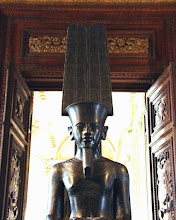Argentina pushes diplomacy in new Falklands bid
Monday is Malvinas Day here so i'm not surprised. Will write about it then. Has an interesting side to it.
"Twenty-five years after hostilities ceased, Argentina is opening a new front in the Falklands War.
Rather than jets and mortar rounds, however, this salvo involves diplomats appealing for help at the United Nations and the government reasserting long-standing claims to the island chain, where far more sheep than people huddle against the forbidding South Atlantic winds.
London, however, maintains its hold on the island, which Argentina invaded 25 years ago this Monday.
Many Argentines -- especially the left-wing power base of President Nestor Kirchner -- see the war as a huge mistake pursued by the nation's discredited military dictators.
But Argentines still universally call the Falklands -- known in South America as the "Malvinas" -- as their own. And in this election year, Kirchner appears poised to gain support by pushing hard against Britain's firm refusal to negotiate on the islands' fate.
"Argentina has never consented to the United Kingdom's claim of rights to the territory," Eduardo Airaldi, Kirchner's top official in charge of the South Atlantic region, said as he described Kirchner's position in an interview with The Associated Press.
Kirchner's predecessors didn't do as much to press Argentina's claims to the islands. Former President Carlos Menem restored diplomatic ties with Britain in 1990 after agreeing to shelve the sovereignty question.
In contrast, Kirchner declared the archipelago's recovery to be "a permanent and irrevocable objective of the Argentine people." His government expressed irritation when Britain protested the presence of an Argentine ship near the islands and challenged changes to fishing rights made by Falklands administrators.
In January, he sent his foreign minister to lobby U.N. Secretary-General Ban Ki-moon to support new sovereignty talks.
Argentina on Tuesday said it scrapped a deal Menem had signed with the British to explore for oil and natural gas around the Falklands. The joint venture yielded no major discoveries, but was long on symbolism, since it represented an Argentine acknowledgment of British rights to the sea floor. Britain's Foreign Office called the end of the deal a "regrettable action" that "will not in any way help Argentina in its claim for sovereignty of the Islands."
Just before the Argentine invasion on April 2, 1982, diplomats from both countries had been talking about an eventual Hong Kong-like handover of the colony Britain had occupied since 1833, despite the idea's unpopularity in London and among the 3,000 or so British-descended residents of the island, known as "kelpers."
But the invasion changed all that.
"We will not discuss sovereignty unless and until the Islanders so wish. At present they do not," a British Foreign Office spokeswoman told the AP on condition of anonymity in line with department policy. "In this respect, 1982 changed everything."
Britain reacted quickly to the invasion, summoning the Queen Elizabeth 2 cruise ship to carry 3,000 troops and mobilizing an armada that included Prince Andrew to sail some 8,000 miles south.
British artillery pounded the Argentine draftees who had dug foxholes in the rocky soil. Humbled by the onslaught, the South American nation surrendered that June 14, after 649 Argentine and 272 British troops were killed.
The two countries share a long history -- the British helped build Argentina's railroads and promoted its beef industry. A large British community still lives in Argentina, served by an English-language daily paper in the capital.
But the Falklands dispute remains an open wound. Many public schools, streets, small businesses and taxi stands are proudly named for the Malvinas. Billboards that read "The Malvinas are ours" are a common sight.
Kirchner has sought to avoid offending either the left or the right in Argentina by focusing on the idea that Britain acted illegally when it expelled an Argentine military garrison from the islands in 1833, a nationalist tone that analysts say won't hurt him this election year.
So Argentines were outraged recently when British Prime Minister Tony Blair compared the British retaking of the islands to the Kosovo air war that led to the overthrow of Serbian strongman Slobodan Milosevic.
"I have got no doubt it was the right thing to do," Blair said in a podcast on his Web site. "But for reasons not simply to do with British sovereignty but also because I think there was a principle at stake which is that a land shouldn't be annexed in that way."
Many Argentines initially supported the war as well, but came to blame the ruling military junta for picking a fight the country had little hope of winning, and sending conscripts to their deaths.
The greatest legacy of the 74-day war for Argentines is that the defeat hastened the fall of the dictatorship a year later in 1983, said Riordan Roett, a political scientist at Johns Hopkins University."
Source





